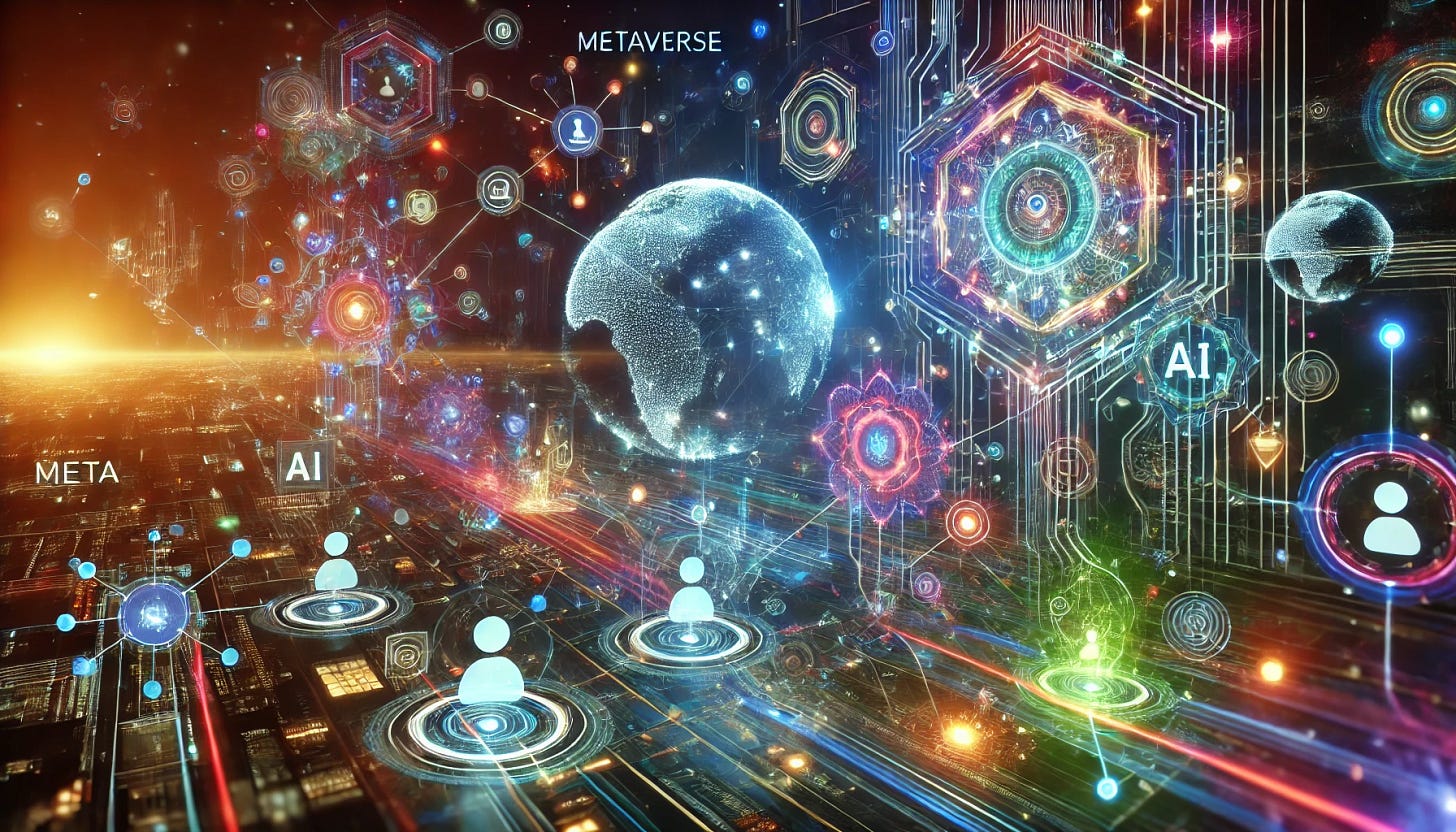AI News Recap: February 14, 2025
Inside the Evolving AI Landscape: Strengthening Security, Advancing Reasoning, and Tackling Bias
It’s Friday! 🎉 - Happy Valentine’s Day ❤️
Hope you're doing well! Below is a quick summary and roundup of industry news, notable developments, and breakthroughs from February 07, 2025, to February 14, 2025.
Summary
AI is expanding its role in cybersecurity, multi-agent reasoning, and open-source collaboration, with new frameworks like SIRIUS, Huginn-3.5B, and Open O1 driving better performance and accessibility. Models like LIMO and CoCoMix show that quality data curation and integrated semantic concepts can outperform massive datasets. Reinforcement learning and user-driven bias corrections enhance trust and alignment with human values, while studies reveal ongoing challenges, such as handling lengthy documents and mitigating bias. AI’s economic impact continues to grow, with Anthropic’s new index highlighting its rising use in software development and writing.
AI News Highlights
Exploring the Intersection of Cybersecurity and AI
Stanford Unveils SIRIUS: A Self-Improving Framework for Multi-Agent Systems
LIMO AI Model Shows Quality Training Outperforms Quantity
Introducing Huginn-3.5B: Advanced AI Model with Scalable Computation
Reinforcement Learning's Role in Shaping Language Models
AI Models Struggle to Navigate Lengthy Documents
Anthropic AI Unveils Economic Index Highlighting AI's Economic Impact
Meta AI Launches CoCoMix: New Framework Merges Token Prediction, Continuous Concepts
Can Users Correct AI Bias? Examining User-Driven Value Alignment in AI
Open O1 Transforms Open-Source AI with Advanced Reasoning and Performance
Exploring the Intersection of Cybersecurity and AI
Published: 2025-02-12
Key Points
AI adoption increases cybersecurity risks, necessitating comprehensive security strategies across devices, premises, and cloud.
AI enhances cybersecurity by enabling automated defenses, personalized behavioral analytics, and advanced threat detection.
Secure by Design principles are crucial for protecting devices, data, and infrastructure against cyber threats.
Source(s)
Stanford Unveils SIRIUS: A Self-Improving Framework for Multi-Agent Systems
Published: 2025-02-13
Key Points
Stanford introduces SIRIUS, enhancing multi-agent systems with reasoning-driven optimization for improved performance.
SIRIUS creates a library of successful reasoning paths, boosting training quality.
The framework improves reasoning and negotiation, with performance gains from 2.86% to 21.88%.
Source(s)
LIMO AI Model Shows Quality Training Outperforms Quantity
Published: 2025-02-13
Key Points
LIMO model shows quality training with minimal examples can outperform models trained on massive datasets.
LIMO achieved significant accuracy improvements on complex benchmarks using only 817 curated training samples.
The approach challenges traditional assumptions of supervised training, focusing on cognitive prompts over data quantity.
Source(s)
Introducing Huginn-3.5B: Advanced AI Model with Scalable Computation
Published: 2025-02-13
Key Points
Huginn-3.5B introduces scalable latent computation for efficient AI reasoning.
The model uses a depth-recurrent transformer to optimize task complexity.
Huginn-3.5B outperforms larger models in reasoning benchmarks.
Source(s)
Reinforcement Learning's Role in Shaping Language Models
Published: 2025-02-13
Key Points
Reinforcement learning enhances Large Language Models (LLMs) by aligning them with human preferences and improving reasoning abilities.
Techniques like RLHF, RLAIF, and RLVR offer diverse approaches to reward-based learning for LLMs.
Optimization methods such as PPO, DPO, and GRPO improve training efficiency and stability for LLMs.
Source(s)
AI Models Struggle to Navigate Lengthy Documents
Published: 2025-02-13
Key Points
AI models struggle with long documents, performing poorly beyond 2,000 words due to reliance on word matching.
NOLIMA benchmark reveals AI's difficulty in connecting concepts without exact word matches in lengthy texts.
Limitations impact real-world applications, highlighting the need for human oversight in analyzing complex documents.
Source(s)
Anthropic AI Unveils Economic Index Highlighting AI's Economic Impact
Published: 2025-02-13
Key Points
Anthropic AI's Economic Index tracks AI's economic role using data from millions of Claude conversations.
AI is mainly used in software development and writing, with 36% of occupations using AI for 25% of tasks.
The Index distinguishes between AI augmentation and automation, highlighting AI's varying roles across professions.
Source(s)
Meta AI Launches CoCoMix: New Framework Merges Token Prediction, Continuous Concepts
Published: 2025-02-13
Key Points
Meta AI introduces CoCoMix, a pretraining framework integrating token prediction with continuous concepts for improved reasoning and interpretability.
CoCoMix uses Sparse Autoencoders to extract semantic features, enhancing language models' efficiency and conceptual understanding.
CoCoMix demonstrates improved sample efficiency, generalization, and knowledge transfer across various benchmarks and model sizes.
Source(s)
Can Users Correct AI Bias? Examining User-Driven Value Alignment in AI
Published: 2025-02-14
Key Points
AI companions often exhibit biases, causing harm to marginalized communities.
Conventional developer-led bias correction is insufficient for diverse user needs.
User-driven bias correction involves users actively reshaping AI behavior.
Source(s)
Open O1 Transforms Open-Source AI with Advanced Reasoning and Performance
Published: 2025-02-14
Key Points
Open O1 aims to match proprietary AI models' capabilities through open-source, democratizing access to advanced AI.
It enhances reasoning in models like LLaMA using Supervised Fine-Tuning and Chain-of-Thought Activation.
Open O1 demonstrates significant performance improvements in reasoning tasks, challenging existing open-source models.
Source(s)
This content is curated and compiled autonomously using a Python-driven AI system. While every effort is made to ensure accuracy, we welcome your feedback on any discrepancies you may notice.













